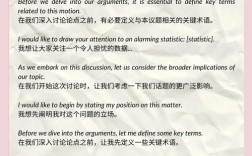Perseverance is the bridge between dreams and reality. Throughout history, great minds have distilled the essence of persistence into powerful words that continue to inspire generations. This article explores some of the most impactful English quotes about perseverance, examining their origins, authors, contexts, and practical applications in modern life.

"Success is not final, failure is not fatal: It is the courage to continue that counts." – Winston Churchill
Origin & Context
Winston Churchill, Britain’s wartime Prime Minister, spoke these words during World War II, a period marked by relentless adversity. His leadership during the Blitz demonstrated that resilience, not just victory, defines true success.
Why It Resonates
This quote shifts focus from outcomes to effort. Many people fear failure, believing it defines them, but Churchill reframes persistence as the true measure of strength.
How to Apply It
- In Business: View setbacks as learning opportunities rather than endpoints.
- In Personal Growth: Track progress, not just results, to stay motivated.
"It always seems impossible until it’s done." – Nelson Mandela
Origin & Context
Mandela spent 27 years in prison before leading South Africa out of apartheid. His words reflect the mindset needed to overcome seemingly insurmountable challenges.
Why It Resonates
Human psychology often magnifies obstacles. Mandela’s quote reminds us that impossibility is a perception, not a reality.
How to Apply It
- Break Down Goals: Tackle large tasks in smaller steps.
- Visualize Success: Use affirmations to reinforce belief in achievement.
"The only way to do great work is to love what you do." – Steve Jobs
Origin & Context
Jobs delivered this line in his famous 2005 Stanford commencement speech, emphasizing passion as the fuel for persistence.
Why It Resonates
Without passion, persistence falters. Jobs’ insight highlights that enduring effort requires genuine interest.

How to Apply It
- Career Choices: Align work with personal values.
- Daily Motivation: Remind yourself why your work matters.
"Fall seven times, stand up eight." – Japanese Proverb
Origin & Context
This proverb, rooted in Japanese resilience philosophy, encapsulates the spirit of ganbaru (perseverance).
Why It Resonates
Failure isn’t the opposite of success—it’s part of the process. The proverb’s simplicity makes it universally relatable.
How to Apply It
- Develop a Growth Mindset: See failures as stepping stones.
- Practice Self-Compassion: Avoid self-criticism after setbacks.
"Perseverance is failing 19 times and succeeding the 20th." – Julie Andrews
Origin & Context
Andrews, a legendary actress, faced rejection early in her career before landing iconic roles like Mary Poppins.
Why It Resonates
Success often requires repeated effort. Andrews’ words normalize struggle as part of the journey.
How to Apply It
- Track Attempts: Log efforts to see progress.
- Celebrate Small Wins: Each step forward builds momentum.
"Our greatest weakness lies in giving up. The most certain way to succeed is always to try just one more time." – Thomas Edison
Origin & Context
Edison failed thousands of times before inventing the light bulb. His quote underscores that persistence outlasts failure.
Why It Resonates
Quitting guarantees failure, while persistence opens the door to success.

How to Apply It
- Set Milestones: Focus on incremental progress.
- Adopt a Problem-Solving Mindset: Each failure teaches something new.
"Hard work beats talent when talent doesn’t work hard." – Tim Notke
Origin & Context
Notke, a high school basketball coach, emphasized that effort surpasses innate ability when discipline is lacking.
Why It Resonates
Natural talent is an advantage, but relentless effort is the ultimate differentiator.
How to Apply It
- Prioritize Consistency: Daily effort compounds over time.
- Compete with Yourself: Measure progress against personal bests.
"You may encounter many defeats, but you must not be defeated." – Maya Angelou
Origin & Context
Angelou, a poet and civil rights activist, overcame poverty and trauma, proving resilience defines destiny.
Why It Resonates
External setbacks don’t determine internal strength. Angelou’s words empower resilience.
How to Apply It
- Reframe Challenges: See them as tests of character.
- Cultivate Inner Strength: Meditation and journaling build mental fortitude.
"The difference between a successful person and others is not a lack of strength, not a lack of knowledge, but rather a lack in will." – Vince Lombardi
Origin & Context
Lombardi, an NFL coach, believed victory came from determination, not just skill.
Why It Resonates
Skill and intelligence matter, but willpower drives sustained effort.

How to Apply It
- Strengthen Discipline: Use habit-tracking tools.
- Find Your "Why": Purpose fuels persistence.
"Persistence can change failure into extraordinary achievement." – Matt Biondi
Origin & Context
Biondi, an Olympic swimmer, lost races before winning multiple gold medals through relentless training.
Why It Resonates
Mastery comes from repetition. Biondi’s journey shows that persistence refines skill.
How to Apply It
- Embrace Deliberate Practice: Focus on improving weaknesses.
- Stay Patient: Mastery takes time.
Persistence is not just a trait—it’s a practice. These quotes remind us that every great achievement is built on the foundation of unwavering effort. Whether in business, art, or personal growth, the willingness to keep going, even when progress seems slow, separates the extraordinary from the ordinary. The next time doubt creeps in, let these words reignite your resolve. The path to success is paved with persistence, and every step forward, no matter how small, brings you closer to your goals.











